
Articles by Uganda
Family planning for the mother of six, struggling with sickle cell
Lillian Lamunu and her husband are both out of work and are struggling to look after their six children who all have Sickle Cell Disease. Lillian is worried that if she doesn’t do something soon she might end up having another baby. She spoke to one of RHU’s clinicians who told her that they saw she had a lot of problems and a lot of children. The clinician suggested that she went and got family planning but Lillian wanted something more permanent. “I want them to remove my tube. Let me remain with these six children. Because my children were all born with Sickle Cell Disease and keeping them is very difficult,” said Lillian. She opted for tubal ligation but her husband was yet to grant her permission to undergo the surgery so that she stops giving birth. “I know that he might be convinced but I don’t know when” Lillian added. One Ugandan commentator said that in Gulu like the rest of Uganda, contraceptive use was still too low and their uptake was still largely driven by male dominated culture and patriarchal values. Lillian said that it was very expensive looking after her six children who all need daily medication. “I don’t have enough money for keeping them,” she said. Much of her time is spent in hospital with her sick children so she says that she is unable to get a job. Follow a day in the life of our team and clients in Gulu, Uganda 07:00 08:00 9:00 10:00 11:00 12:00 13:00 14:00 15:00 16:00 17:00 22:00 Prev Next 7am: The team prepare for the long day ahead "Every year tens of thousands of Ugandans come to our clinic. Everyone is welcome. Here are just a few of the people that we served in one day last month." READ MORE 8am: Nancy, 19, becomes a volunteer "I was suffering but when I came here, I was treated and I got better. Now I'm inspired to volunteer here" READ MORE 9am: Monica, 25, a sex worker's story "I am sex working. I came here for Hepatitis B testing and also counselling. I have so many personal problems, but here….they’re so caring." READ MORE 10am: Jane, 23, saved by family planning "After multiple miscarriages, family planning here has helped me a lot. I'm glad we've been able to space the number of children we've had. I am not growing old, I am fresh." READ MORE 11am: Vicky, handling disabilities "I'm deaf so accessing services is hard, but here they really try to speak in sign language." READ MORE 12pm: Dorcus, first time patient "This is the first time I've ever come here, I like the service. They give good counselling so I recommend coming." READ MORE 1pm: Christine, 45, a grandmother's tale of living with HIV "I am living with HIV and had HPV. They treated me and now I'm free of cervical cancer." READ MORE 2pm: Lilian, struggling mother of six with sickle cell " I have sickle cell disease and so do all my children. I want to have my tube removed so that I don't get pregnant again but I don't know if my husband will allow it." READ MORE 3pm: Brenda and Francis get fertility treatments "Fertility treatment is a sensitive issue in Uganda but they help us a lot and we get proper treatment." READ MORE 4pm: Joyce, 25, repected regardless of her disability "I realised that at this place they don't segregate. Us people with disabilities have challenges at the main hospitals. You go there, people around look at you as if you are not a human being and you don't fall sick." READ MORE 5pm: Mobile clinic provides outreach services to remote villages "Our outreach to remote communities is a 'one-stop-centre'. We give family planning, vaccines for HPV, malaria, and Hepatitis B, HIV testing and more." READ MORE 22pm: Still giving the last client our very best "Together, we have great teamwork. Sometimes we're still working up to 10pm because we never chase out our clients. We’ll never close the place when we have a client inside. People come when they have no hope." READ MORE
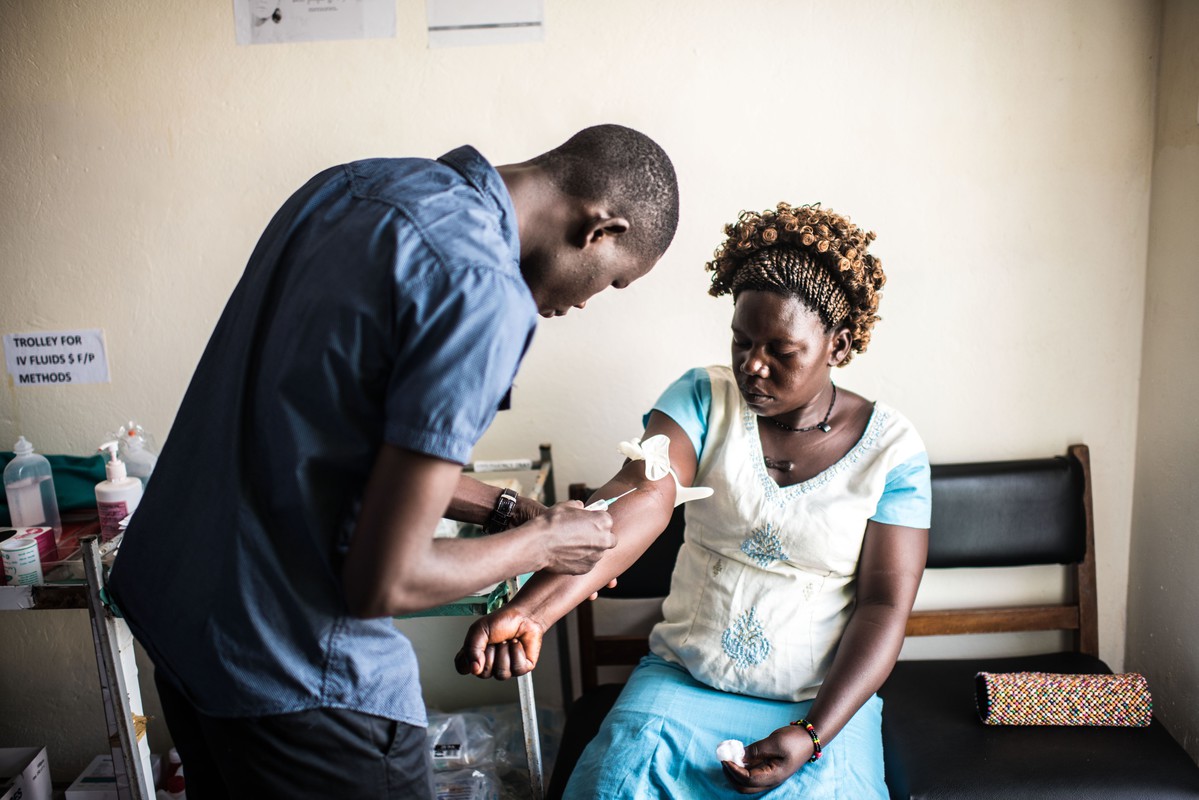
Social behavior change communications increases outreach in rural Uganda
Dorcas Lanyero is a married teacher who lives near to the Gulu Clinic but this is the first time she has ever been for treatment. She found out about RHU on the radio and through hearing her friends talking about the Gulu Clinic. “I came because I wasn’t feeling well, I was feeling some pain in my abdomen. They helped me, they tested me and took me for a scan. I have some infection so they have given me medicine. “I was so happy that they welcomed me and they served me well, the four different doctors and nurse talked to me well, they gave me all the services and now I am getting treatment,” she said. Dorcas said she had been told to come back for another check-up in one month and to get family planning too. “I would definitely recommend this clinic to other people. I have seen the environment and people working here are so friendly. They give you treatment and counselling.” Follow a day in the life of our team and clients in Gulu, Uganda 07:00 08:00 9:00 10:00 11:00 12:00 13:00 14:00 15:00 16:00 17:00 22:00 Prev Next 7am: The team prepare for the long day ahead "Every year tens of thousands of Ugandans come to our clinic. Everyone is welcome. Here are just a few of the people that we served in one day last month." READ MORE 8am: Nancy, 19, becomes a volunteer "I was suffering but when I came here, I was treated and I got better. Now I'm inspired to volunteer here" READ MORE 9am: Monica, 25, a sex worker's story "I am sex working. I came here for Hepatitis B testing and also counselling. I have so many personal problems, but here….they’re so caring." READ MORE 10am: Jane, 23, saved by family planning "After multiple miscarriages, family planning here has helped me a lot. I'm glad we've been able to space the number of children we've had. I am not growing old, I am fresh." READ MORE 11am: Vicky, handling disabilities "I'm deaf so accessing services is hard, but here they really try to speak in sign language." READ MORE 12pm: Dorcus, first time patient "This is the first time I've ever come here, I like the service. They give good counselling so I recommend coming." READ MORE 1pm: Christine, 45, a grandmother's tale of living with HIV "I am living with HIV and had HPV. They treated me and now I'm free of cervical cancer." READ MORE 2pm: Lilian, struggling mother of six with sickle cell " I have sickle cell disease and so do all my children. I want to have my tube removed so that I don't get pregnant again but I don't know if my husband will allow it." READ MORE 3pm: Brenda and Francis get fertility treatments "Fertility treatment is a sensitive issue in Uganda but they help us a lot and we get proper treatment." READ MORE 4pm: Joyce, 25, repected regardless of her disability "I realised that at this place they don't segregate. Us people with disabilities have challenges at the main hospitals. You go there, people around look at you as if you are not a human being and you don't fall sick." READ MORE 5pm: Mobile clinic provides outreach services to remote villages "Our outreach to remote communities is a 'one-stop-centre'. We give family planning, vaccines for HPV, malaria, and Hepatitis B, HIV testing and more." READ MORE 22pm: Still giving the last client our very best "Together, we have great teamwork. Sometimes we're still working up to 10pm because we never chase out our clients. We’ll never close the place when we have a client inside. People come when they have no hope." READ MORE
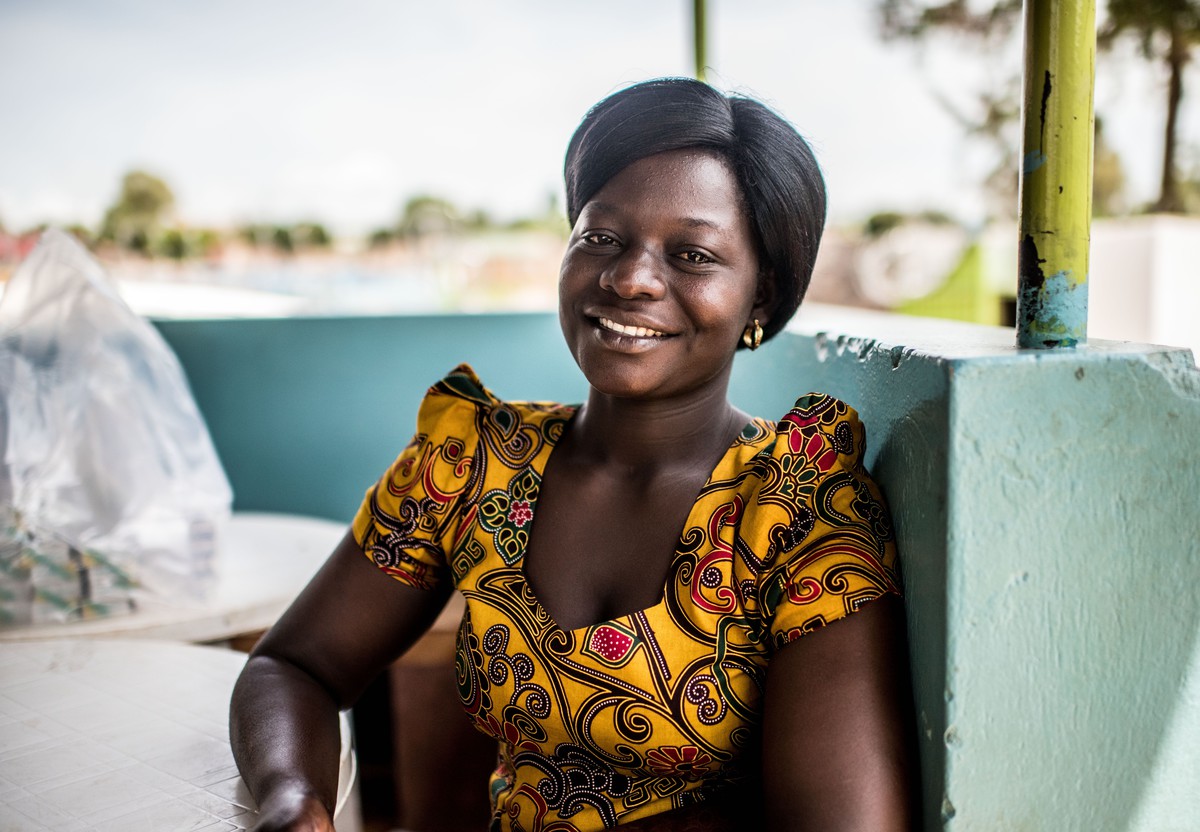
Dealing with a disability: one woman's story about healthcare in rural Uganda
Vicky Acora is a married mother of two. She faces all the usual challenges that women face when it comes to getting sexual and reproductive health services but Vicky’s life is further complicated because she is deaf. She says the biggest challenge in accessing services is communication. “For example I come to the health centre, I meet a nurse but how will I communicate with her? “They speak to me in English but I know Acholi and then there’s sign language which they don’t know. Many times interpreters want money if you are to come with them,” explains Acora. Vicky stopped education in primary school after both of her parents died at the peak of the 20-year insurgency in Northern Uganda. Vicky learnt sign language through Gulu's Disable Person’s Union where she is a board member representing Deaf Women. She also went through the Gulu Deaf Association where she learnt how to communicate in sign language. Acora, first came to know about Reproductive Health Uganda in January this year when she was invited to volunteer to cook for participants at a training session. Then in June, she returned to the clinic to test for HIV. She says she had previously had a bad experience at a hospital in Gulu when she was seeking antenatal services when she was pregnant. “When I was pregnant, I entered the hospital, I sat in a queue, and the nurse asked me how can I help you? It was very hard for me to explain. I didn’t know what she was asking. And then the nurse asked what the problem with this woman was." Her experience at Gulu Clinic, however, was very different. “They are really most welcoming and they try to communicate even in the little sign language they know. They are really very warm.” She says she has since been advising other deaf people to seek services with Reproductive Health Uganda. Through her interpreter Acora said: “I also encourage disabled people who use wheelchairs to come and access services here – not just deaf people.” Follow a day in the life of our team and clients in Gulu, Uganda 07:00 08:00 9:00 10:00 11:00 12:00 13:00 14:00 15:00 16:00 17:00 22:00 Prev Next 7am: The team prepare for the long day ahead "Every year tens of thousands of Ugandans come to our clinic. Everyone is welcome. Here are just a few of the people that we served in one day last month." READ MORE 8am: Nancy, 19, becomes a volunteer "I was suffering but when I came here, I was treated and I got better. Now I'm inspired to volunteer here" READ MORE 9am: Monica, 25, a sex worker's story "I am sex working. I came here for Hepatitis B testing and also counselling. I have so many personal problems, but here….they’re so caring." READ MORE 10am: Jane, 23, saved by family planning "After multiple miscarriages, family planning here has helped me a lot. I'm glad we've been able to space the number of children we've had. I am not growing old, I am fresh." READ MORE 11am: Vicky, handling disabilities "I'm deaf so accessing services is hard, but here they really try to speak in sign language." READ MORE 12pm: Dorcus, first time patient "This is the first time I've ever come here, I like the service. They give good counselling so I recommend coming." READ MORE 1pm: Christine, 45, a grandmother's tale of living with HIV "I am living with HIV and had HPV. They treated me and now I'm free of cervical cancer." READ MORE 2pm: Lilian, struggling mother of six with sickle cell " I have sickle cell disease and so do all my children. I want to have my tube removed so that I don't get pregnant again but I don't know if my husband will allow it." READ MORE 3pm: Brenda and Francis get fertility treatments "Fertility treatment is a sensitive issue in Uganda but they help us a lot and we get proper treatment." READ MORE 4pm: Joyce, 25, repected regardless of her disability "I realised that at this place they don't segregate. Us people with disabilities have challenges at the main hospitals. You go there, people around look at you as if you are not a human being and you don't fall sick." READ MORE 5pm: Mobile clinic provides outreach services to remote villages "Our outreach to remote communities is a 'one-stop-centre'. We give family planning, vaccines for HPV, malaria, and Hepatitis B, HIV testing and more." READ MORE 22pm: Still giving the last client our very best "Together, we have great teamwork. Sometimes we're still working up to 10pm because we never chase out our clients. We’ll never close the place when we have a client inside. People come when they have no hope." READ MORE
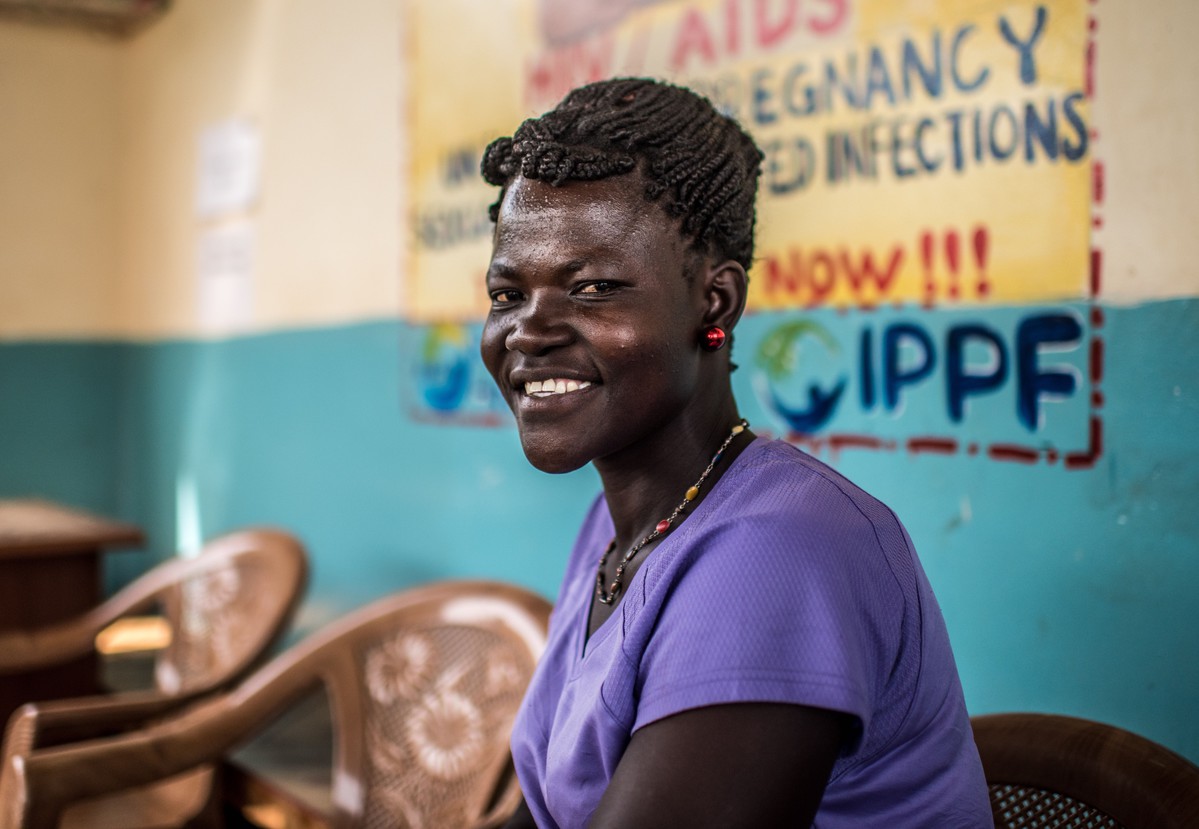
A husband and wife make a joint decision about family planning
23-year-old Jane Atenyo Franca is a mother of two. She got pregnant at school when she was 17. Her boyfriend left her and she was forced to drop out of education. She later married someone else who already had two wives but left him after suffering multiple miscarriages. She has since married again and had a second child. She learnt about RHU’s Gulu Clinic after attending a health forum that the clinic had organised in her village. “They talked about family planning, HIV, and they talked about very many diseases. “I decided to come back for family planning. I came back with my husband and we had counselling together. We agreed to go for the implant method. “My husband was initially worried about being seen by other people. He was worried that people might think we had a sexually transmitted disease but I talked to him about reproductive health and about the importance of not having too many children. “I am glad that we have been able to space the number of children we have. “Family planning has helped me a lot. Some of my friends have had many children and they seem old and tired. I am not growing old, I am fresh. “Some people used to say that you would bleed until you die with an implant but there is nothing wrong with me: I am free and fresh.” Atenyo Franca Jane said she now goes to the clinic for a range of services. “I am back today because I have pain in my abdomen. I also have a swollen foot.” She said she would recommend RHU and Gulu Clinic to all her friends because the staff were friendly, welcoming and gave good advice. Follow a day in the life of our team and clients in Gulu, Uganda 07:00 08:00 9:00 10:00 11:00 12:00 13:00 14:00 15:00 16:00 17:00 22:00 Prev Next 7am: The team prepare for the long day ahead "Every year tens of thousands of Ugandans come to our clinic. Everyone is welcome. Here are just a few of the people that we served in one day last month." READ MORE 8am: Nancy, 19, becomes a volunteer "I was suffering but when I came here, I was treated and I got better. Now I'm inspired to volunteer here" READ MORE 9am: Monica, 25, a sex worker's story "I am sex working. I came here for Hepatitis B testing and also counselling. I have so many personal problems, but here….they’re so caring." READ MORE 10am: Jane, 23, saved by family planning "After multiple miscarriages, family planning here has helped me a lot. I'm glad we've been able to space the number of children we've had. I am not growing old, I am fresh." READ MORE 11am: Vicky, handling disabilities "I'm deaf so accessing services is hard, but here they really try to speak in sign language." READ MORE 12pm: Dorcus, first time patient "This is the first time I've ever come here, I like the service. They give good counselling so I recommend coming." READ MORE 1pm: Christine, 45, a grandmother's tale of living with HIV "I am living with HIV and had HPV. They treated me and now I'm free of cervical cancer." READ MORE 2pm: Lilian, struggling mother of six with sickle cell " I have sickle cell disease and so do all my children. I want to have my tube removed so that I don't get pregnant again but I don't know if my husband will allow it." READ MORE 3pm: Brenda and Francis get fertility treatments "Fertility treatment is a sensitive issue in Uganda but they help us a lot and we get proper treatment." READ MORE 4pm: Joyce, 25, repected regardless of her disability "I realised that at this place they don't segregate. Us people with disabilities have challenges at the main hospitals. You go there, people around look at you as if you are not a human being and you don't fall sick." READ MORE 5pm: Mobile clinic provides outreach services to remote villages "Our outreach to remote communities is a 'one-stop-centre'. We give family planning, vaccines for HPV, malaria, and Hepatitis B, HIV testing and more." READ MORE 22pm: Still giving the last client our very best "Together, we have great teamwork. Sometimes we're still working up to 10pm because we never chase out our clients. We’ll never close the place when we have a client inside. People come when they have no hope." READ MORE
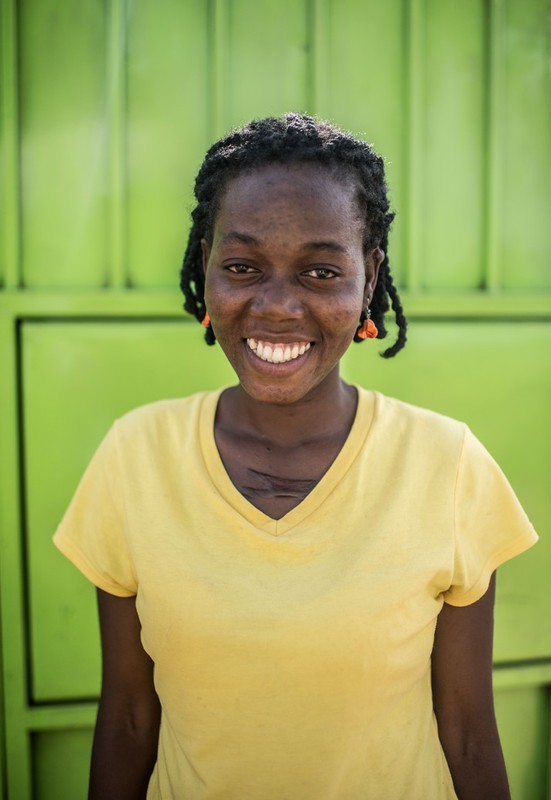
Providing Hepatitis B outreach in rural Uganda: one sex worker's story
"I’m 25-years-old and a mother of two children. I lost my parents during the war, so I grew up alone. I ended up dropping out of school and I went for sex working. I am selling myself in order for me to sustain a living. "My second born is 10 months old and my first born is 7 years. He’s at home with me because I have no money to pay for his school fees. "I heard about Reproductive Health Uganda a few years ago but I couldn’t access it until they did their outreaches where I was staying. I stay far from town. "I came purposely here to RHU for Hepatitis B testing and also counselling because I have so many personal problems. I’m also on family planning and about to start using an IUD, I want to get that from here now also. "I like coming here, I’m satisfied with all the services because it's free of charge, they’re so caring, the way that they handle people. They handled us in a good way, they know how to talk to us. I’m so happy about the way I was welcomed here. Follow a day in the life of our team and clients in Gulu, Uganda 07:00 08:00 9:00 10:00 11:00 12:00 13:00 14:00 15:00 16:00 17:00 22:00 Prev Next 7am: The team prepare for the long day ahead "Every year tens of thousands of Ugandans come to our clinic. Everyone is welcome. Here are just a few of the people that we served in one day last month." READ MORE 8am: Nancy, 19, becomes a volunteer "I was suffering but when I came here, I was treated and I got better. Now I'm inspired to volunteer here" READ MORE 9am: Monica, 25, a sex worker's story "I am sex working. I came here for Hepatitis B testing and also counselling. I have so many personal problems, but here….they’re so caring." READ MORE 10am: Jane, 23, saved by family planning "After multiple miscarriages, family planning here has helped me a lot. I'm glad we've been able to space the number of children we've had. I am not growing old, I am fresh." READ MORE 11am: Vicky, handling disabilities "I'm deaf so accessing services is hard, but here they really try to speak in sign language." READ MORE 12pm: Dorcus, first time patient "This is the first time I've ever come here, I like the service. They give good counselling so I recommend coming." READ MORE 1pm: Christine, 45, a grandmother's tale of living with HIV "I am living with HIV and had HPV. They treated me and now I'm free of cervical cancer." READ MORE 2pm: Lilian, struggling mother of six with sickle cell " I have sickle cell disease and so do all my children. I want to have my tube removed so that I don't get pregnant again but I don't know if my husband will allow it." READ MORE 3pm: Brenda and Francis get fertility treatments "Fertility treatment is a sensitive issue in Uganda but they help us a lot and we get proper treatment." READ MORE 4pm: Joyce, 25, repected regardless of her disability "I realised that at this place they don't segregate. Us people with disabilities have challenges at the main hospitals. You go there, people around look at you as if you are not a human being and you don't fall sick." READ MORE 5pm: Mobile clinic provides outreach services to remote villages "Our outreach to remote communities is a 'one-stop-centre'. We give family planning, vaccines for HPV, malaria, and Hepatitis B, HIV testing and more." READ MORE 22pm: Still giving the last client our very best "Together, we have great teamwork. Sometimes we're still working up to 10pm because we never chase out our clients. We’ll never close the place when we have a client inside. People come when they have no hope." READ MORE
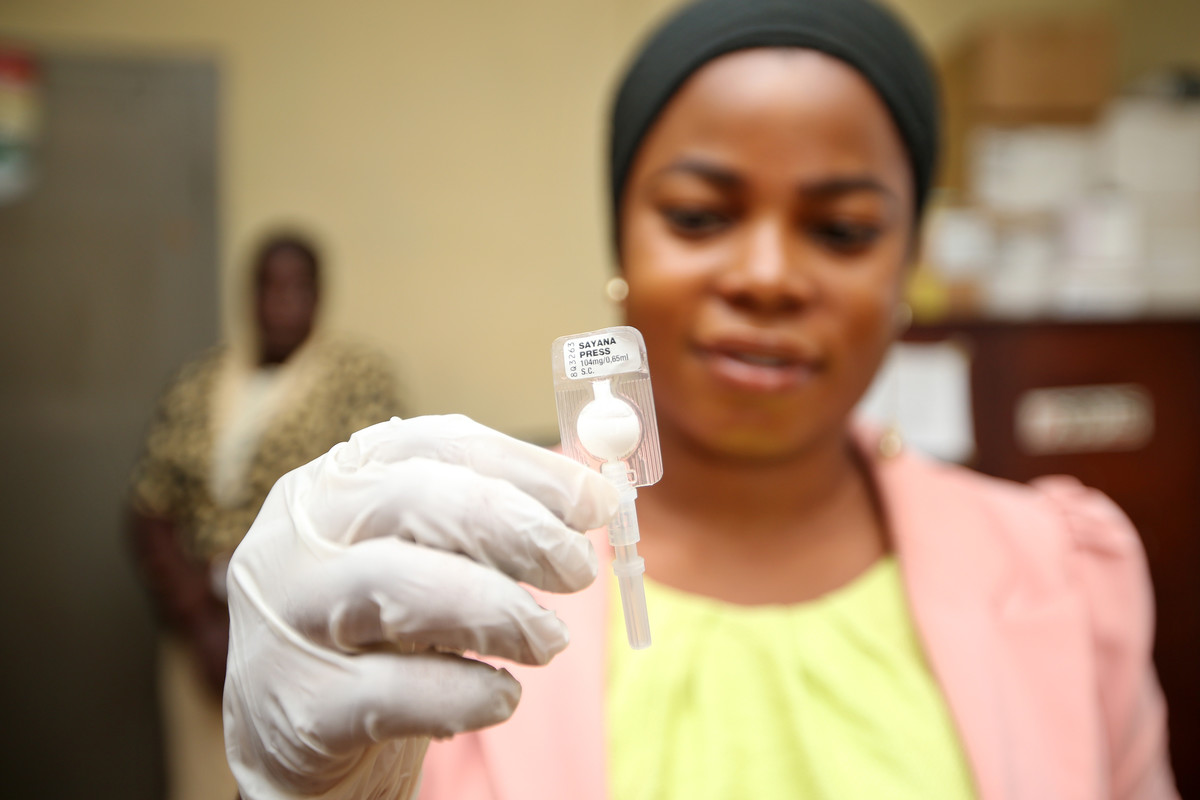
Sayana efforts will help widen contraceptive choice for world’s poorest and neglected women says IPPF
Expanding contraceptive choices offers the potential to put power into women’s hands said the International Planned Parenthood Federation (IPPF) in reaction to the Sayana Press announcement by Pfizer BD, and the Bill and Melinda Gates Foundation, and CIFF today. IPPF is already playing a major role in the introduction of Sayana Press to increase access to the world’s most poorest and underserved women and girls. Sayana Press is offered as part of the contraceptive mix by IPPF’s Member Associations in Uganda, Nigeria, Burkina Faso and Senegal. They are doing this by providing Sayana Press at our extensive network of clinics, and by training community volunteers and government staff to give women Sayana Press in their own communities. Tewodros Melesse, Director General IPPF said; “This announcement is a great opportunity to enable women and girls who are often left behind because they are poor, unable to make decisions because of their partners, too far from a clinic or disabled to access contraception. Sayana Press has the potential to reach those who have never been able to access family planning before. We have seen that Sayana Press is popular with women in remote communities who can’t easily get to a clinic or drug shop. We are keen to see countries move towards community based distribution and ultimately, self-injections. All efforts must truly reach the last mile. Enabling women to administer in their own time and wherever they are is the only way to put power truly into women’s hands. It is a great step in helping to tackle the needs of the most poorest or neglected women and girls. But like any contraceptive, it must be offered as part of a broader mix of methods available and not favored more than others. Choice means every women and girl has the right to choose about their contraception wherever and whoever they are.” IPPF launched its annual global I Decide Campaign on family planning today. IPPF is fighting for a world where women everywhere can say "I decide". Support our call for universal access to contraception! Add your voice
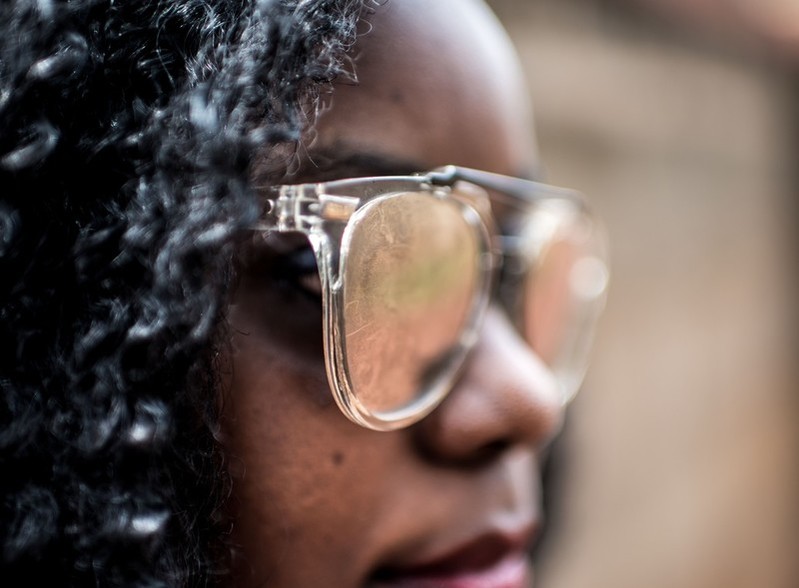
Providing access to safe abortion and sexual health services for sex workers
Many sex workers in Uganda end up having unwanted pregnancies often resorting to unsafe abortions. There are many myths and misconceptions about contraception as well as a lack of access. This issue was one of the reasons why Lady Mermaid's Bureau (LMB), a sex workers rights organisation from Kampala, decided to apply for a grant from the Safe Abortion Action Fund (SAAF) in 2013. Founded in 2002 by a group of former sex workers, the Lady Mermaid's Bureau, the first organization of its kind in the region, works to prevent and reduce unsafe abortions amongst sex workers in Uganda and campaigns to decriminalize abortion and sex work. The Safe Abortion Action Fund (SAAF) which is hosted by IPPF was set up in 2006 in order to support grass-roots organisations to increase access to safe abortion. Photography © IPPF/Tommy Trenchard
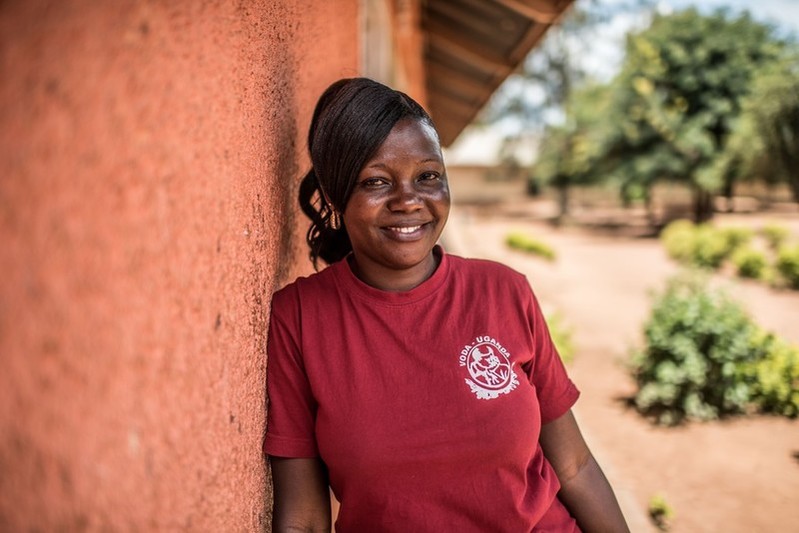
Changing perceptions about abortion in rural Uganda
In the three years since the VODA Uganda project started there have been some incredible results. The project has brought about changes in perceptions about abortion in the community and schools, bringing community leaders and health workers on board, explaining the problems of unsafe abortion and directing girls and women to post-abortion care services. VODA (volunteers of development assistance) is a local, grassroots project funded by the Safe Abortion Action Fund (SAAF). The Safe Abortion Action Fund (SAAF) which is hosted by IPPF, was set up in 2006 in order to support grass-roots organisations to increase access to safe abortion. Photography © IPPF/Tommy Trenchard
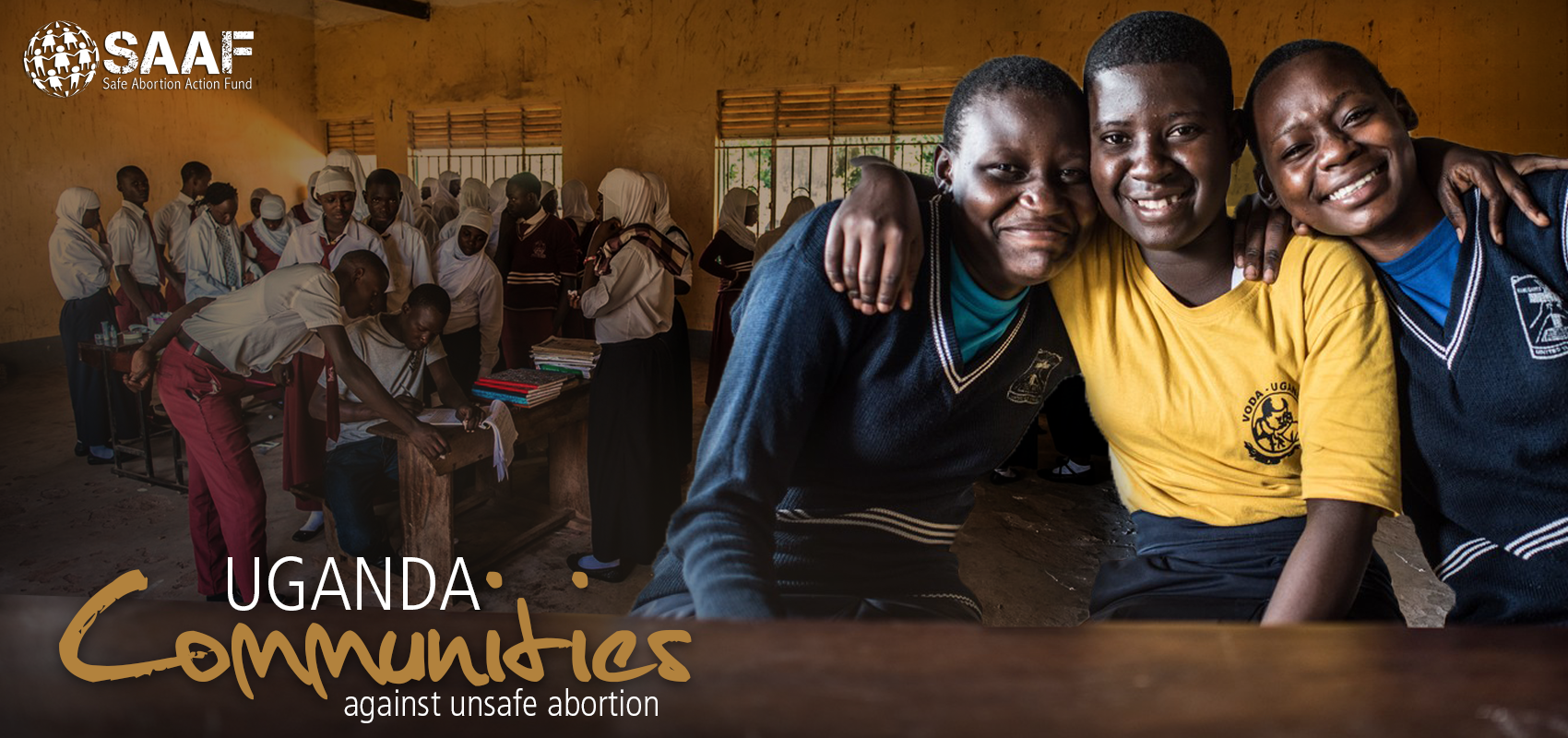
Empowering school students for change
Stopping unsafe abortion and stigma through education Rural communities in Uganda have a high prevalence rate of gender inequality, sexual abuse and incest. There is little provision of sexual and reproductive health services and abortion is highly restricted. The Safe Abortion Action Fund, hosted by IPPF, is financing the grassroots organization, VODA, to empower young people as changemakers in their schools and communities. With training and support, peer educators have been educating friends about sexual and reproductive health, and local health providers are serving women in need. Death from unsafe abortion was once a widespread problem but through the power of peer education, these have almost disappeared and community attitudes towards safe abortion has been transformed. READ MORE Maria Midwife Grace "I took care of Anne after she tried an unsafe abortion, she was bleeding a lot, she may have even died. She had been raped ." READ MY STORY Margret Mother Margret "I lost my daughter, Gladys. She was 16 and studying at senior secondary school. I didn't know she was pregnant" READ MY STORY Mary COUNSELOR Mary "Sometimes we receive cases related to incest. I thank VODA for coming to aid these desperate young girls who have had experiences like mine." READ MY STORY John Owoli RELIGIOUS LEADER John Owoli "I decided to join a campaign that focuses on stopping unsafe abortion because I just want to save lives. Stigma was a very widespread problem here." READ MY STORY See more about the Safe Abortion Action Fund in Uganda
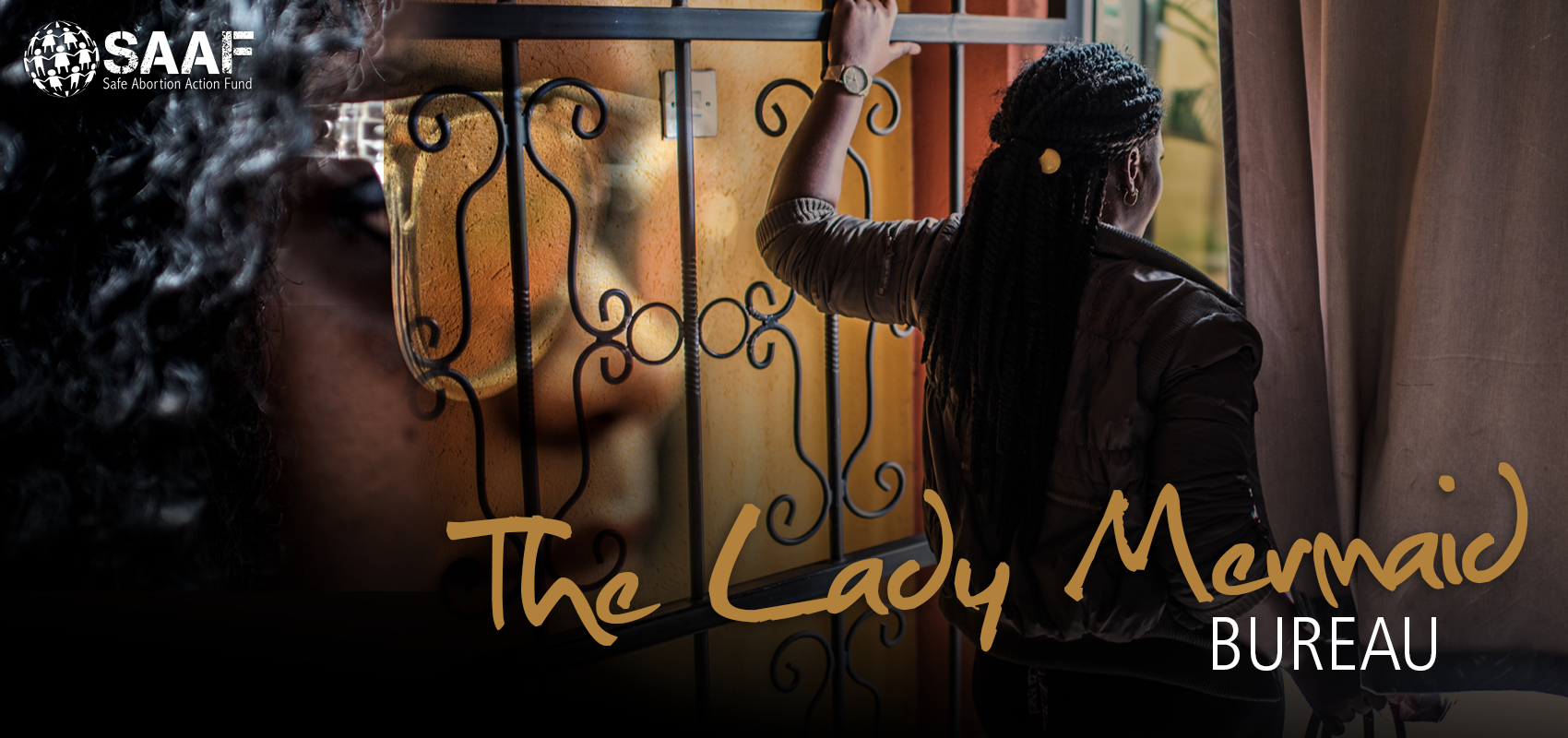
Sex workers in Uganda: fighting violence and inequality
Make abortion safe. Make abortion legal In Uganda, 42% of all pregnancies each year are unintended. The country's weak economy is exacerbated by high levels of gender inequality and poor access to jobs for women. Many women who turn to sex work are at risk of abuse and often rape. Abortion is heavily restricted in Uganda and clandestine safe services are very costly. This results in further poverty for many sex workers and sometimes unplanned pregnancies or even death from unsafe abortion.IPPF hosts the Safe Abortion Action Fund (SAAF), and the Lady Mermaid Bureau - a local grassroots project - is funded by SAAF to empower sex workers with the legal support and reproductive health services they need to make informed decisions. READ MORE Joanna SEX WORKER Joanne "We are not respected - some police rape us. Many have got pregnant, including me." READ MY STORY Masitula SEX WORKER Masitula "I have no family left but this project has changed my life. Now I have a friend." READ MY STORY Debora SEX WORKER Debora "Sex work isn't easy. You don't fit in society because others see you as someone who can be neglected" READ MY STORY Pretty Lynn SEX WORKER Pretty Lynn "Being a sex worker is like a curse. People look at you like you are the worst thing that can happen in society." READ MY STORY See more about the Safe Abortion Action Fund in Uganda







